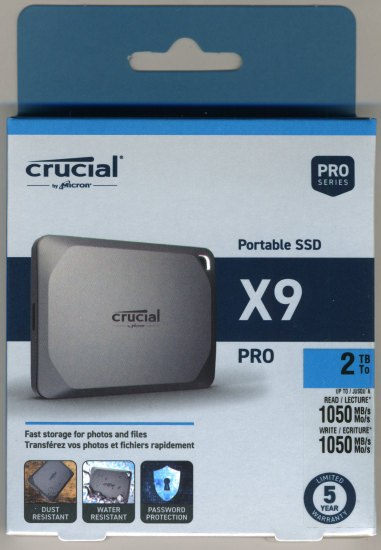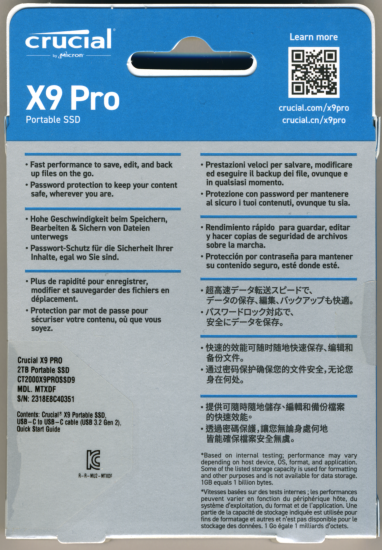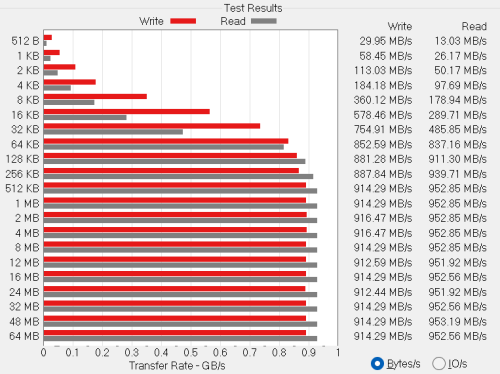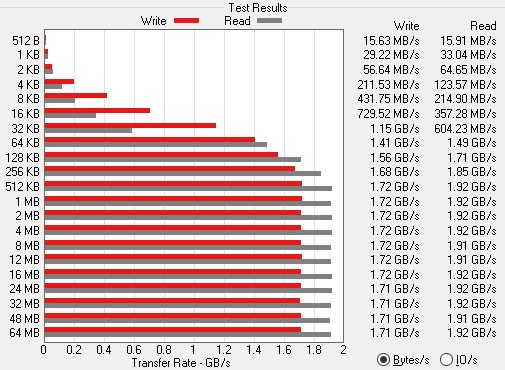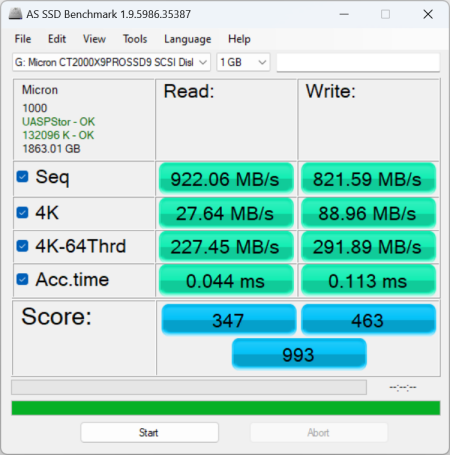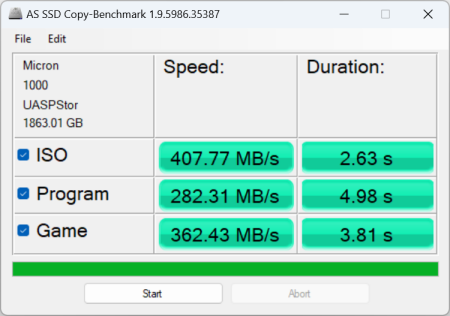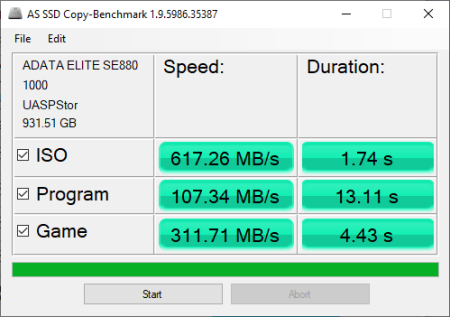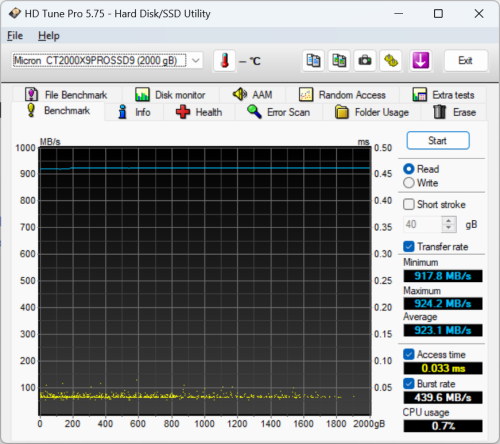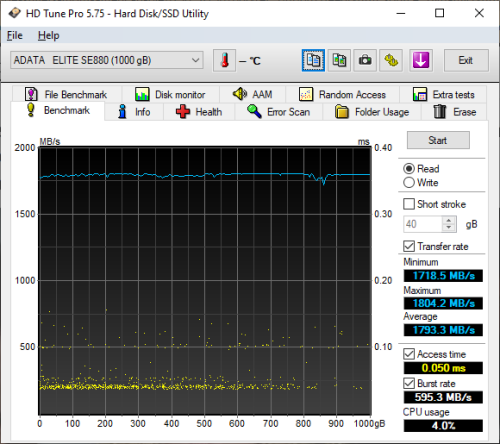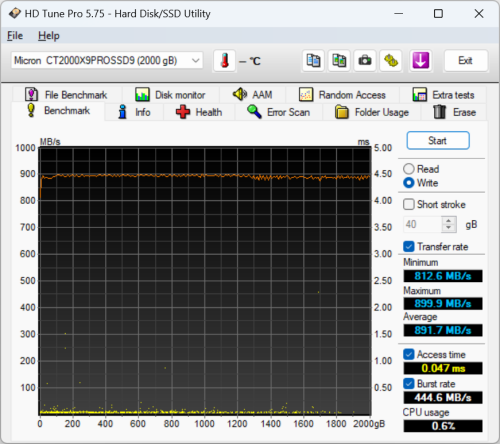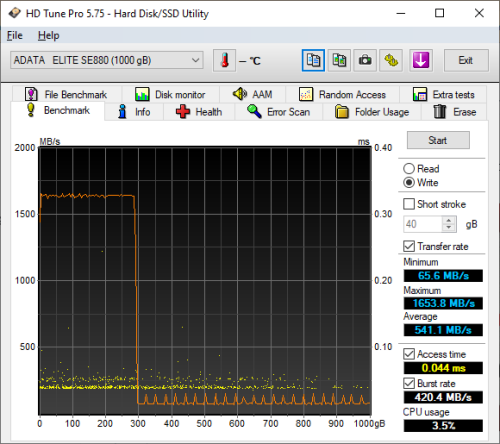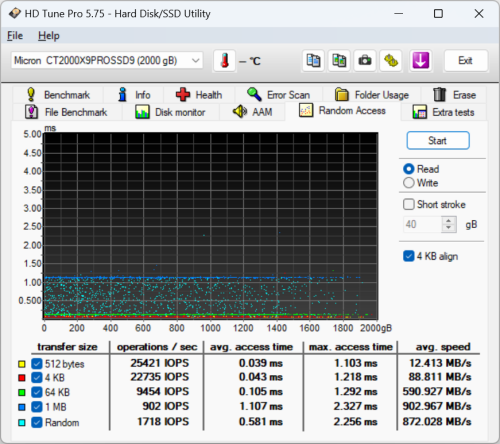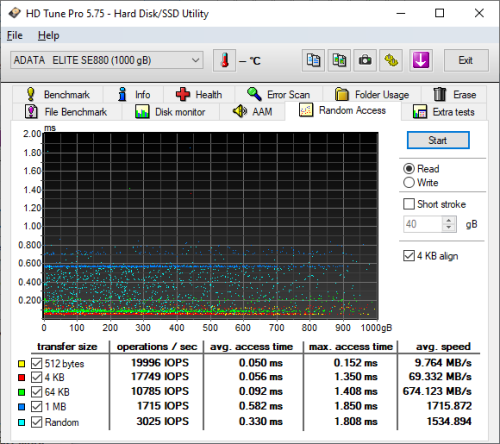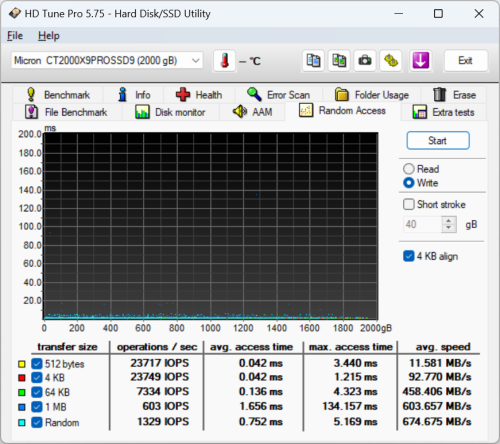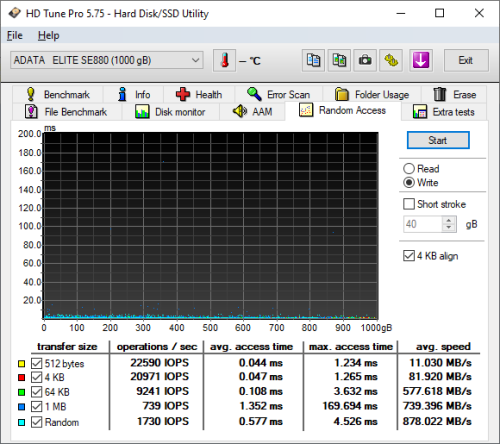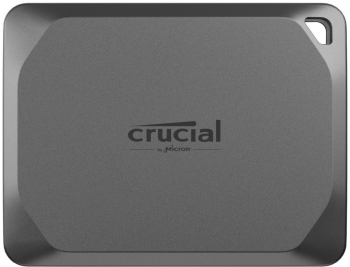

Model: Crucial X9 Pro 2TB Portable Solid State Drive
Manufacturer: Crucial
Provided By: Crucial
Crucial is a global brand of Micron Technology, Inc., one of the largest memory and flash storage manufacturers in the world. The company's product lineup includes award-winning solid state drives (SSDs) and computer memory upgrades (DRAM) for more than 50,000 systems. These products have been qualified and approved by major original equipment manufacturers and every single module has been rigorously tested at the component and module level. Each SSD also undergoes over a thousand hours of prerelease validation testing and hundreds of qualification tests to ensure optimal reliability and performance.
Earlier this year, Crucial unveiled a pair of new portable SSDs, the X9 Pro and X10 Pro. Designed for content creators such as photographers, videographers or any performance-seeking consumer, these palm-sized drives are made out of anodized aluminum and are water and dust resistant (IP55) and can withstand accidental drops of up to 7.5 feet. On the inside, the X9 Pro and X10 Pro are powered by Silicon Motion's SM2320 controller and are available with up to 4TB of Micron's TLC NAND flash. The main difference between the two is the USB interface. Where the X10 Pro supports USB 3.2 Gen 2x2 (20Gb/s), the X9 Pro features a more conservative USB 3.2 Gen 2 (10Gb/s) Type-C connection. Nevertheless, the X9 Pro is able to read and write at speeds up to 1,050 MB/s and is compatible with Windows, Mac, Android, iPad, Linux, PlayStation and Xbox gaming consoles.
The X9 Pro is available in 1TB, 2TB and 4TB capacities. For this review, Crucial sent us the 2TB version of the drive which is capable of delivering up to 1,050 MB/s sequential read and write speeds.
| Crucial X9 Pro 2TB Portable Solid State Drive | |||||||||||||||
General Specifications
Performance
Other Features
|
Needless to say, this is only a taste of what the X9 Pro has to offer. To give you an idea of what to expect, we'll take a closer look at Crucial's new portable SSD and then see how well it performs. Does the X9 Pro have what it takes? Can it deliver the performance and features that we've come to expect from Crucial? Keep reading as we find out.
The X9 Pro comes in a small, silver and blue box. Along with a picture of the drive, the packaging advertises a number of its key features including its 2TB capacity, 1050 MB/s transfer speeds, dust and water resistance, and password protection. Inside the box, you'll find the X9 Pro, a Type-C USB cable and a small, multilingual quick-start guide.
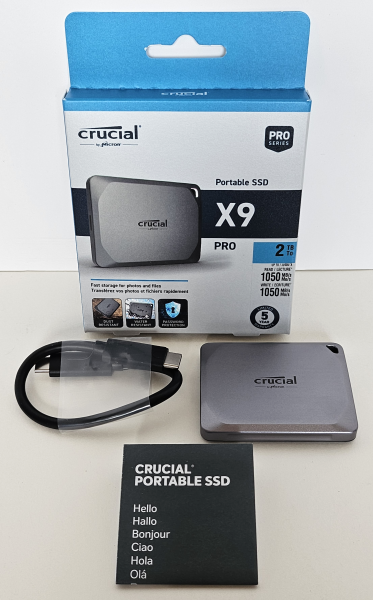
Physical Features:
The X9 Pro is one of the smallest portable SSDs to come through the 'Labs. Measuring 65 x 50 x 10mm and weighing in at a mere 38g, the drive fits comfortably in the palm of a hand as well as your pocket.
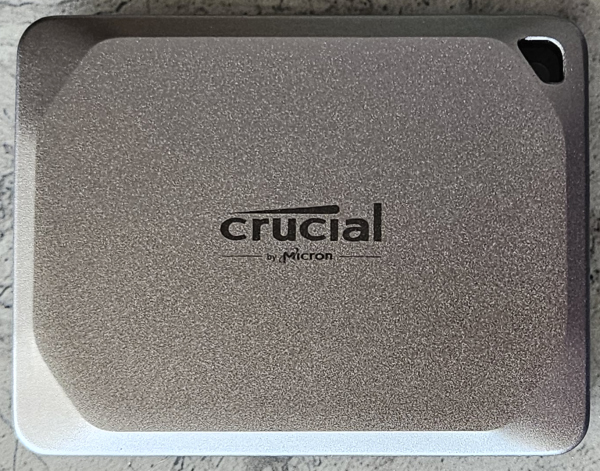
Despite being compact and lightweight, the X9 Pro is very well constructed. The body of the drive is anodized aluminum with a rubberized soft touch base. The X9 Pro also has an integrated lanyard hole with a built in activity light.
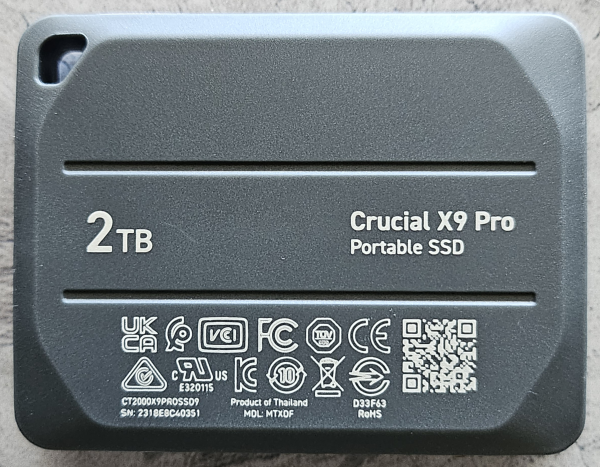
The X9 Pro's USB 3.2 Gen 2 Type-C port is located on the end of the drive opposite that of the lanyard hole. This interface transfers data and provides power for the device.

If you were to crack the X9 Pro open, you'd find Silicon Motion's SM2320 controller. Designed for use in portable SSDs, this DRAM-less controller solution features an on-chip USB 3.2 Gen 2 interface as well as four NAND flash channels. The SM2320 also includes Silicon Motion's NANDXtend ECC end-to-end data path protection and supports up to 4TB of capacity using the latest TLC and QLC NAND. In this case, the X9 Pro is equipped with Micron's 176L 3D TLC NAND flash.
The test system used in this review is equipped with an AMD Ryzen 9 7900x CPU, Gigabyte B650E AORUS Master motherboard, 32GB (16GB x 2) of Corsair Vengeance 5200MT/s DDR5 memory, Samsung 990 Pro 2TB SSD and a GIGABYTE GeForce GTX 1060 WINDFORCE OC 6G graphics card. For the operating system, I used the latest version of Windows 11.
To test the performance of Crucial's X9 Pro portable SDD, I ran a series of benchmarks using CrystalDiskMark, ATTO Disk Benchmark, AS SSD, HD Tune Pro, Anvil's Storage Utilities, Iometer and PCMark. For comparison, I've also included test results from the Solidigm P44 Pro, Samsung 990 PRO, ADATA LEGEND 960, Crucial P3 Plus, SK hynix Platinum P41, Silicon Power XS70, WD_BLACK SN770, ADATA XPG ATOM 50, ADATA XPG GAMMIX S70 Blade, Crucial P5 Plus, Plextor M10PY, ADATA XPG GAMMIX S70, Sabrent Rocket 4 Plus, WD_BLACK SN850, Silicon Power US70, ADATA XPG GAMMIX S50 Lite, ADATA Elite SE880, Kingston XS2000, ADATA XPG ATOM 30, Samsung 980, Silicon-Power UD70, Crucial P2, SK hynix Gold P31 and Crucial P5.
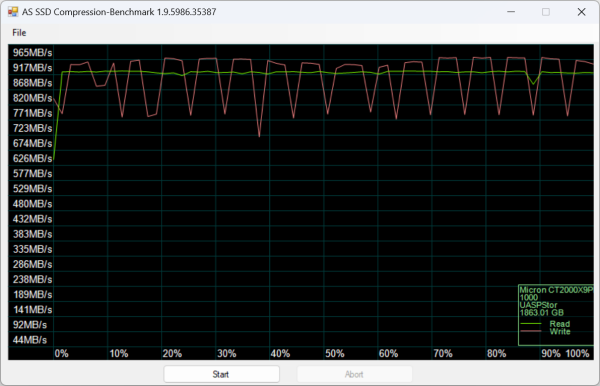
As I mentioned earlier, the X9 Pro uses Silicon Motion's SM2320 controller chip. Looking at the screenshot above, you can see that it performs equally well with both incompressible (0%) and compressible (100%) data.
CrystalDiskMark 8.0.4:
First, I ran a few quick tests using CrystalDiskMark. This benchmark measures the performance of a storage device by testing its sequential and random read and write speeds. For this test, we're using the peak and real world profiles.
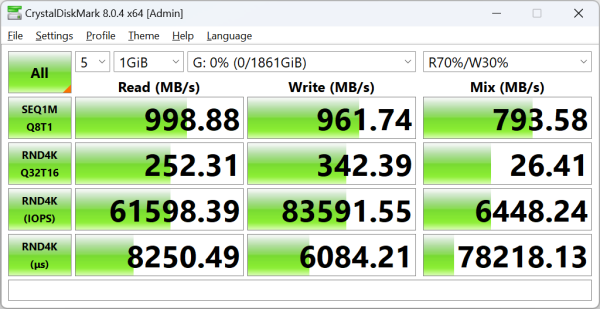
According to Crucial, the X9 Pro is capable of reading and writing at 1,050 MB/s when plugged into a USB 3.2. While the drive performed well, it came up a bit short of this number in CrystalDiskMark's sequential read and write tests.
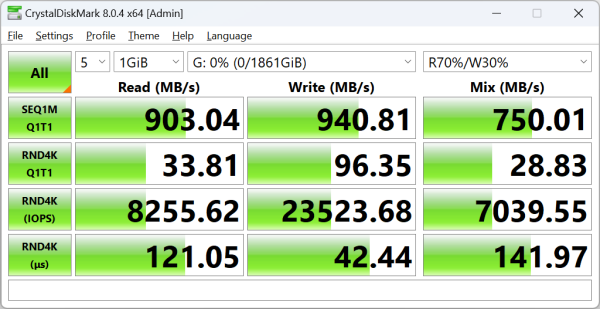
As you'd expect, the X9 Pro wasn't as fast when tested with the "real world" profile which uses a single thread and a much lower queue depth. Nevertheless, it was still able to read at 903 MB/s and write at more than 940 MB/s.
ATTO Disk Benchmark 4.01:
I also used ATTO Disk Benchmark to test the X9 Pro's sequential read and write speeds. The tests are run using blocks ranging in size from 512B to 64 MB and the total length set to 256MB.
When tested with ATTO, the X9 Pro's read speeds topped out at about 953 MB/s and its write speeds at 916 GB/s.
AS SSD:
AS SSD is a benchmark designed specifically for solid state drives. The application contains five synthetic tests which are used to determine the sequential and random read and write performance of a drive.
AS SSD also includes a copy benchmark. This test copies an ISO (two large files), program (many small files) and game (small and large files), returning the speed and duration of each.
HD Tune Pro 5.75:
Next, I ran a series of tests using HD Tune Pro. This hard disk utility measures a drive's performance by testing its sequential read and write speeds as well as its access time, burst rate and CPU usage. For this review, I'm also going to use it to benchmark the Elite SE880's random read and write speeds, random access times and the number of operations per second.
The X9 Pro performed relatively well when benchmarked with HD Tune. The drive had average read and write speeds of 923.1 MB/s and 891.7 MB/s, respectively.
When reading 4KB blocks, the X9 Pro reached 22,735 IOPS and had an average speed of 88.811 MB/s. The drive was slightly faster when writing, reaching 23,749 IOPS with an average speed of 92.770 MB/s.
Anvil's Storage Utilities:
Anvil's Storage Utilities is another benchmark designed with SSDs in mind. The standard storage benchmark measures a drive's performance by testing its transfer speeds, access times and IOPS.
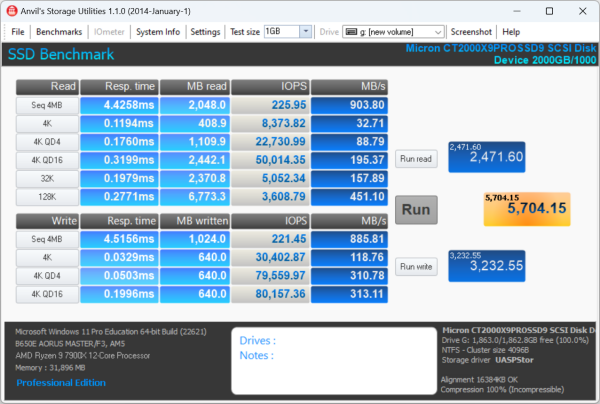
Iometer:
Lastly, I ran a series of tests using Iometer. This tool can be configured to benchmark a number of things. In this case, I used it to measure the X9 Pro's read and write speeds and the number of operations per second. The tests were run using random bytes and a queue depth of 3.

The X9 Pro's performance was very similar to what we saw in our other tests. The drive was able to read at 952.57 MB/s and write at 935.07 MB/s.
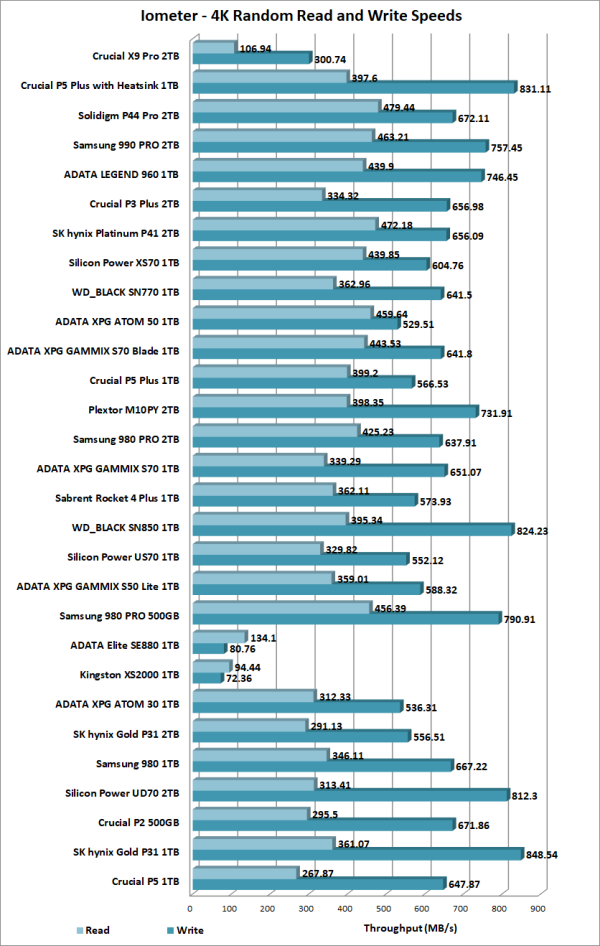
The X9 Pro wasn't one of the faster drives we've tested when it came to random reads and writes. In our tests, the drive was able to read at 106.94 MB/s and write at 300.74 MB/s.

Crucial really doesn't say what the X9 Pro is capable of in regards to IOPS. In our tests, the drive reached 27,377 random read IOPS and 76,789 random write IOPS. Increasing the queue depth had little impact on the X9 Pro's random write performance. However, with four threads and the queue depth set to 32, the drive was able to reach 59,527 random read IOPS.
Vantage PCMark 8 - Storage Test:
PCMark 8 is a complete benchmark for Windows. It includes five benchmark tests, each designed around a specific scenario. The storage benchmark measures drive performance using real-world traces recorded from Adobe Creative Suite, Microsoft Office and a selection of popular games.
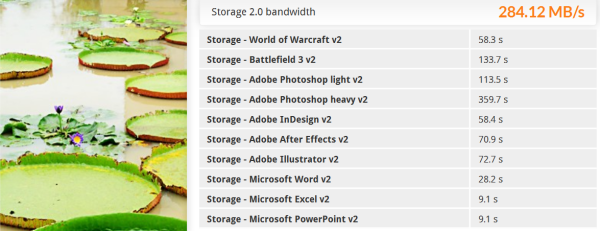
PCMark 10 - Full System Drive Benchmark:
PCMark 10's Full System Drive Benchmark uses a wide-ranging set of real-world traces from popular applications and common tasks to fully test the performance of the fastest modern drives. This benchmark produces an overall score as a measure of drive performance. Comparing devices is as simple as comparing scores. The tests also measure and report the bandwidth and average access time performance for the drive.
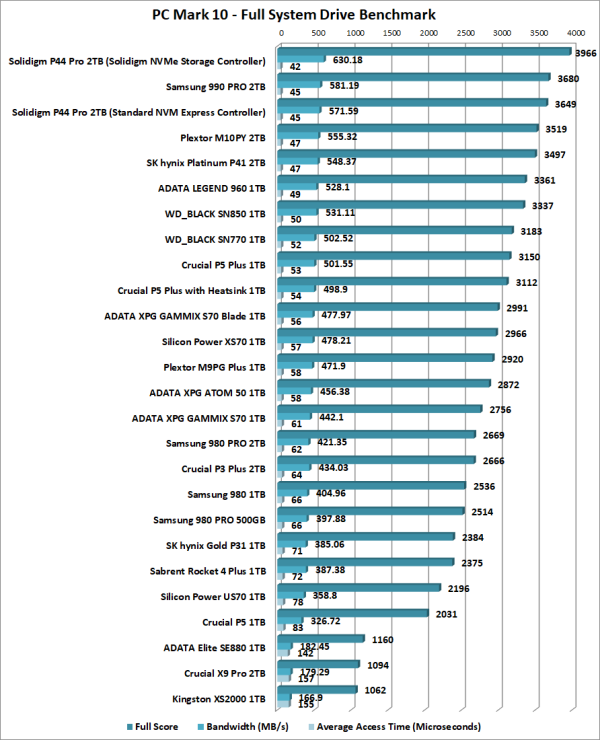
Crucial's X9 Pro portable SSD is a great choice for photographers, videographers, designers or consumers looking for a fast, yet affordable, storage solution that they can use to safely store their data while on the go. Constructed out of anodized aluminum, this ultra-compact, lightweight drive not only looks great, its durable enough to handle whatever life throws at it. The X9 Pro is also powered by Silicon Motion's SM2320 controller and is available with up 4TB of Micron's TLC NAND flash for the storage of thousands of photos, files and videos. Combine this with a USB 3.2 Gen 2 interface and you have a portable SSD that's capable of some respectable performance numbers. In our sequential read and write tests, the X8 was able to read at speeds as high as 998 MB/s and write at speeds in excess of 961 MB/s.
The Crucial X9 Pro is available now in 1TB, 2TB and 4TB capacities. Prices on Amazon.com currently range from $80 up to $240, with the 2TB version reviewed here retailing for about $130.

Highs:
- Available in 1TB, 2TB and 4TB capacities
- Compact, pocket-sized design
- Silicon Motion SM2320 controller
- Equipped with Micron TLC NAND
- USB 3.2 Gen 2 interface
- Good sequential read and write speeds
- Works with Windows, Mac, Android, iPad, Linux, PlayStation and Xbox
- Reasonably priced
- Water, dust, and sand resistant (IP55)
- Password protection and 256‐bit AES hardware encryption
- 5 year warranty
Lows:
- Mediocre random read and write performance
